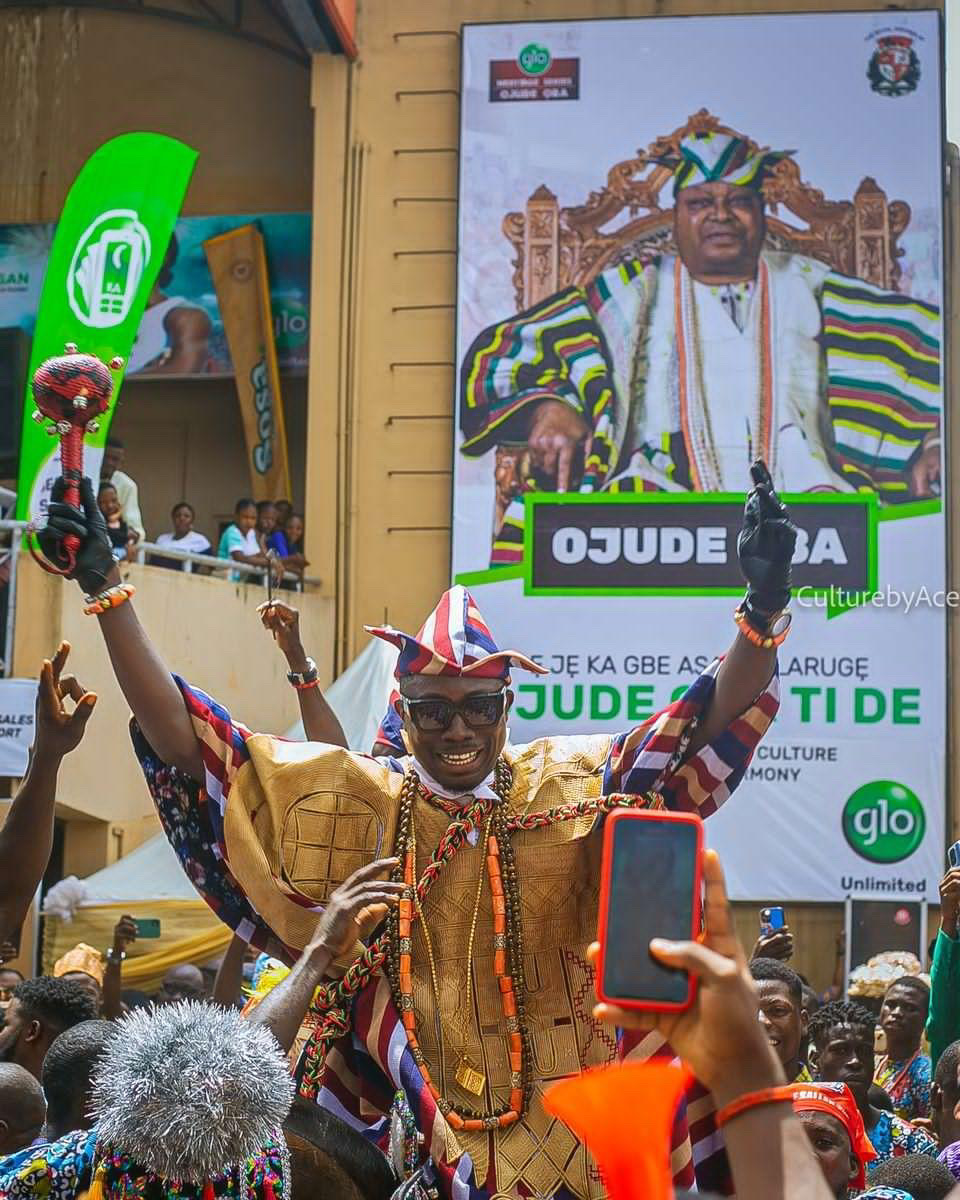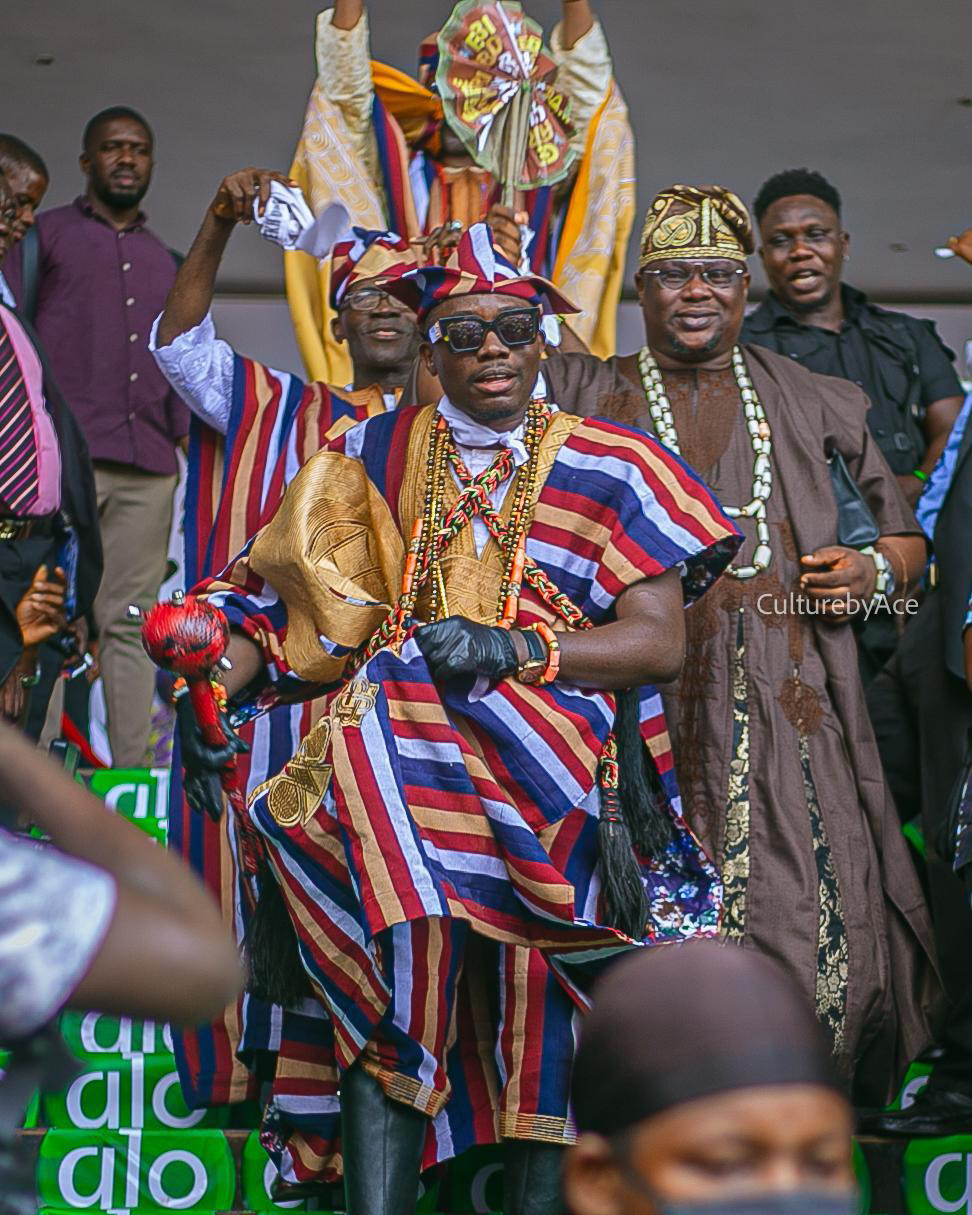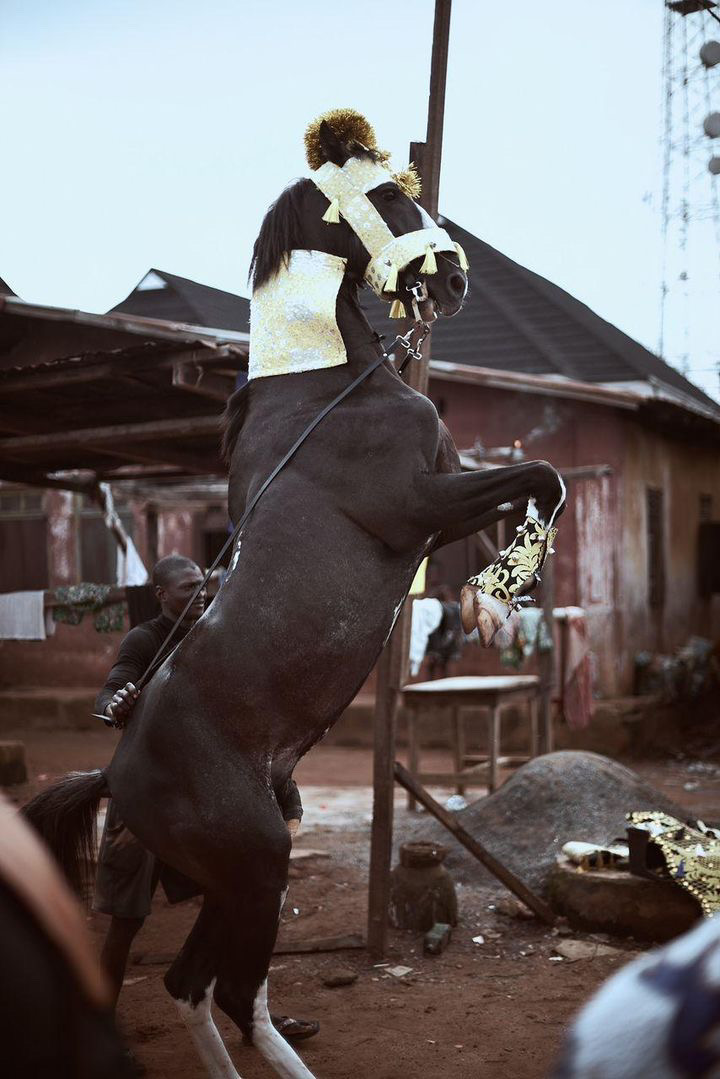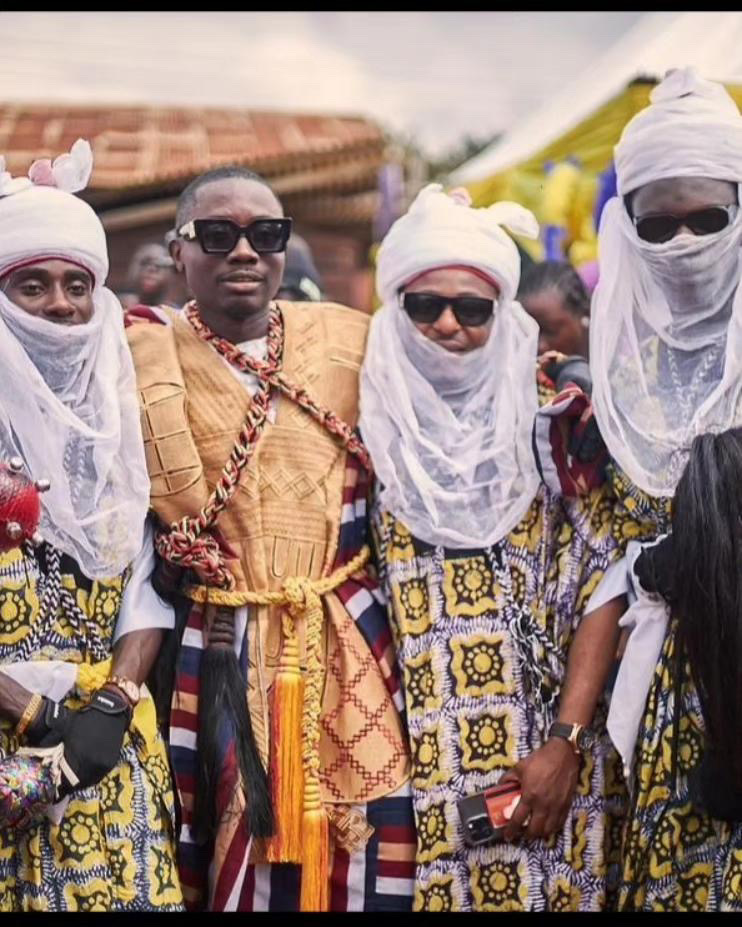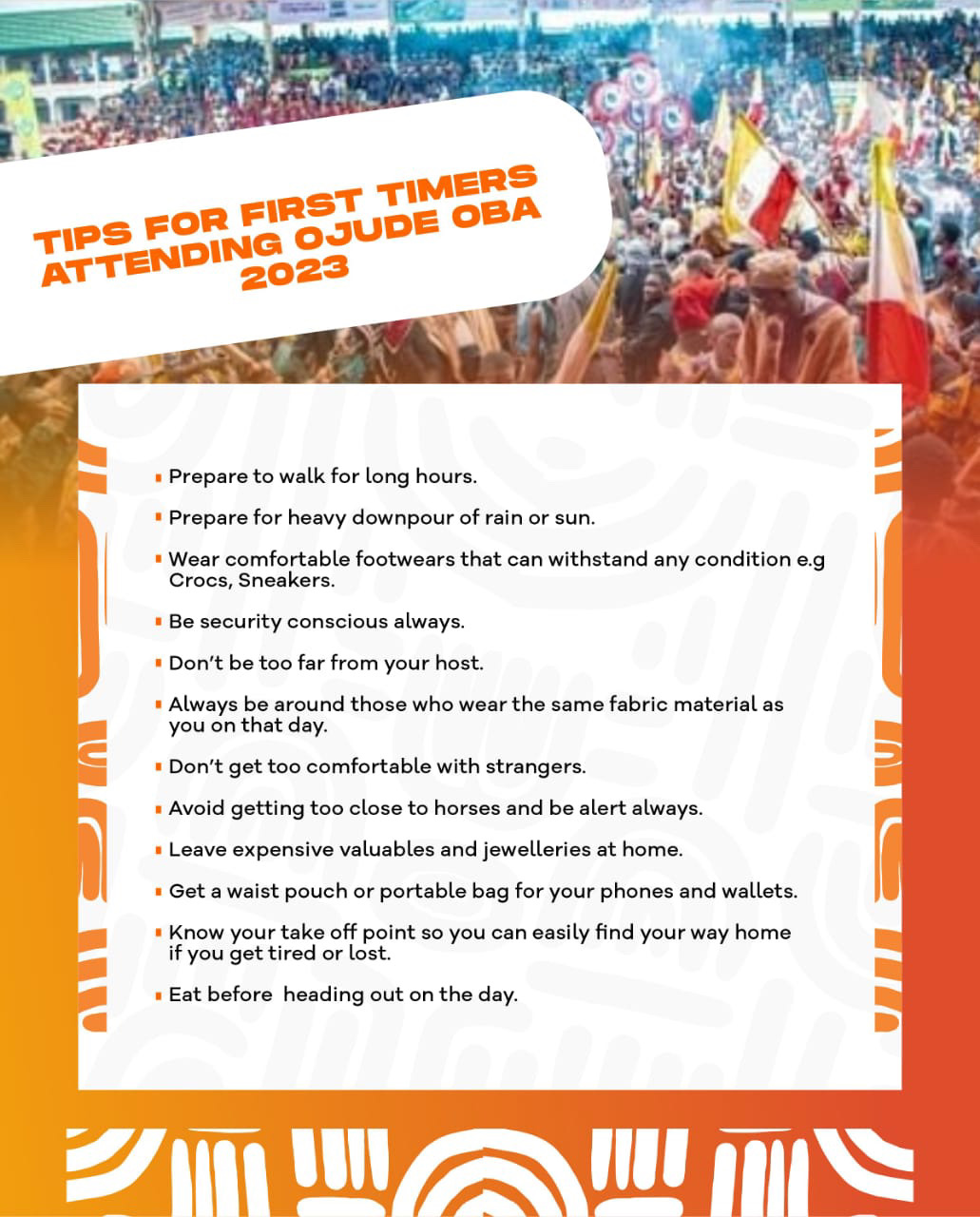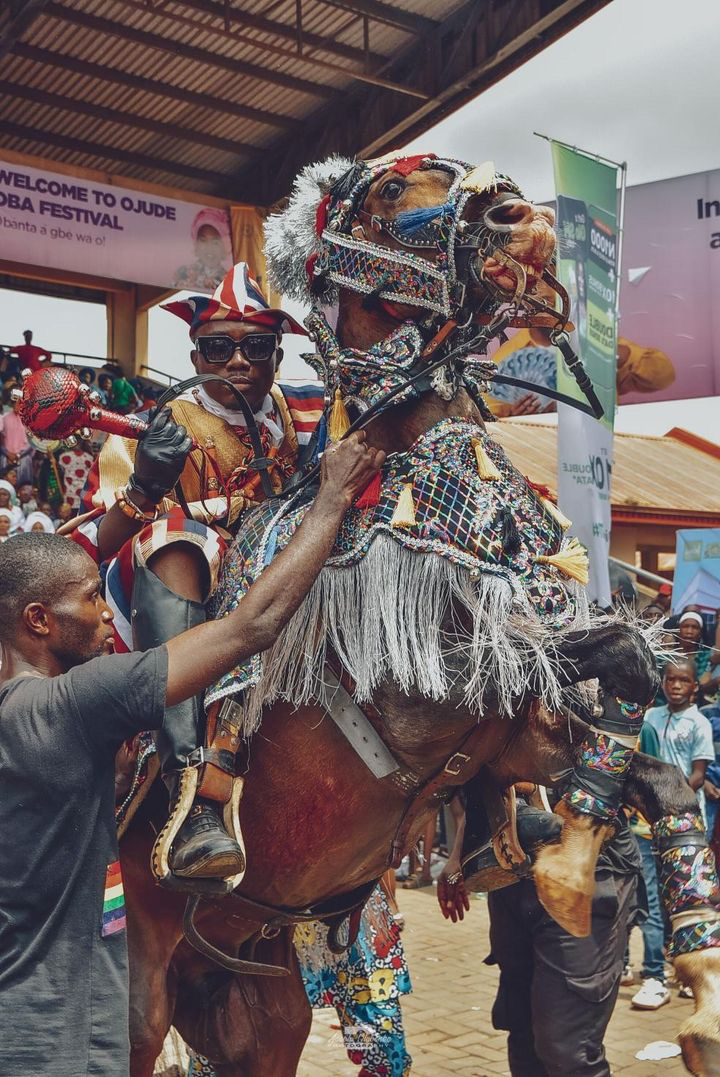The Ojude Oba Festival is an extraordinary spectacle that never fails to amaze us with its vibrant colours, cultural displays, and rich traditions. Just like in previous years, this year’s festival held in Ijebu-Ode, Ogun State during the Sallah period was nothing short of exceptional.
Dating back over a century, the Ojude Oba Festival holds a special place in the hearts of the Ijebus. Its name, derived from the Ijebu dialect, means “the king’s forecourt or parade.” This grand celebration serves as a unifying force, bringing together sons and daughters of Ijebu-land, both within Nigeria and across the diaspora. It is a time to rejoice in the cherished achievements, cultural heritage, and spiritual values of the Ijebu people.
View this post on Instagram
1) have an Ijebu parent/spouse
2)join regberegbe in your age grade which has done the recognition ceremony at the palace
3)attend meetings held monthly in Ijebu-ode
4)do your project for the year
5)pay for asoebi early— Yèyé Balógun Efe (@efearue) July 3, 2023
Throughout the festival, various age groups, known as the Regberegbes, along with indigenes, their friends, and visitors from near and far, dress up in splendid costumes and mount graceful horses. They flock to the palace of the revered Awujale of Ijebuland, paying homage to him in a truly awe-inspiring manner. Amidst heartfelt prayers, the atmosphere brims with joyous activities that captivate all who partake in the festivities.
Since a lot have been asking. The age group thingy/Regberegbe is a 3 year age bracket. The latest ones are ‘Obasete’ born between 1986-1988. The next set would be those born between 1989-1991. If you fit any and you’re interested in joining. You can DM. It’s not cheap sha https://t.co/GYMRdaGbJ4
— Prince Adedoyin A. Alatishe. ACTI (@AAAlatishe) July 4, 2023
Prince Adedoyin Alatishe, the grandson of Balogun Alatishe, the longest reigning Balogun in Ijebu history, gave us insight into what Ojude Oba is all about.
***
Hello Prince Adedoyin! Tell us the significance of Ojude Oba, and what is the history behind the Ojude Oba Festival?
Ojude Oba means the King’s Court or Parade. Ojude Oba was formerly a small gathering of the people of the Islamic religion, which started over 100 years ago when the earliest Muslim converts in Ijebu-Ode paid homage to the Awujale of Ijebu-land, showing their appreciation for granting them the liberty to practise and observe their religion.
It became popular during the reign of the 2nd Balogun of Ijebuland, Balogun Odueyingbo Bello Kuku. It’s on record that in 1890, during the pagan annual ceremony called the Odeda festival in the Awujale palace, Balogun Kuku, his family, and slaves emerged on well-ornamented horses along with his elderly sons and the Muslim Community in a long procession. The entourage was preceded by drummers with their shekere and gunshots, typical of a warlord.
This year’s Ojúde Ọba festival presents a unique opportunity for us to display our hospitality and enviable tradition to a national audience and the global community. pic.twitter.com/elDI7ADMSy
— Prince Dr. Dapo Abiodun – MFR, CON (@dabiodunMFR) June 30, 2023
The most beautiful & colorful festival in Yoruba land.
A cultural tapestry at its finest full of glamour, Joy, and a bit of organized Chaos lol. This year’s edition was definitely giving and excited to have captured this for @goldberglagerng .
Please Retweet , like and… pic.twitter.com/Eu7dhJou54
—
(@ifedayobetii) July 4, 2023
It’s fascinating to hear about the significance of Ojude Oba and its history. Could you tell me more about how families prepare for and organize their participation in Ojude Oba? And how long does this preparation typically take?
There are two types of families that participate with horses on Ojude Oba Day. The Baloguns and the Eleshin. The Baloguns are those who are descendants of past and current Baloguns (generalissimos or warlords) of Ijebu. The Eleshin are those who haven’t been Baloguns yet but have a strong horse-riding lineage. The first step is to draw up a budget, including the colour of fabrics for the year, the number of horse riders, costumes for riders and horses, entertainment for well-wishers, etc. A typical Ojude Oba outing takes a whole year to plan. The moment the 2023 edition ended, plans for the next edition had already started.
Now, I’m curious to hear about your personal experience with the festival. As one of the planners for your family, could you describe your firsthand experience of Ojude Oba?
My first-hand experience with Ojude Oba as one of the planners for my family, Balogun Alatishe (the longest reigning Balogun in Ijebu-land history), I always want us to put on a good show. I go out and encourage the young people, both in my family and outside, to participate. Encourage the old ones not to give up yet. Gather a lot of youths to visit Ijebu occasionally to ride horses with us. Invite friends from far and wide to come and experience our proud culture. Honestly, I’m glad that after so many years of being at the forefront, Ojude Oba is getting the recognition it deserves.
Let’s talk about the aspects of the festival that captivate you the most. What is it that you love most about Ojude Oba?
What I love the most about that day is that you get to see so many family and friends. I look forward to that day more than even my birthday. It’s also another year to be at the forefront of showcasing my horse-riding skills and our culture to everyone who’s looking out for them.
How has the Ojude Oba evolved or changed over the years and what do you think the future of the festival would look like?
These days, Ojude Oba is a lot safer. The youths can participate freely too. The age groups (Regberegbe) weren’t part of it initially. It was just the horse riders. But now they’re a strong pillar of the festival. They come out on that day in their fine attire and looks.
Ijebu Age Grade Groups – Regberegbe
Ojude Oba is a true festival of colours. The audience consist of a major set of attendees grouped into age grade sets called Regberegbe. These are children of the Oba who have been named by the Awujale and grouped respectively based on their… pic.twitter.com/Za7sTx2l3I— The Yoruba Nation CH © (@YorubaNationCH) July 4, 2023
In the future, with the help of social media. It will even be better. Ijebus were the first to build an arena strictly for Ojude Oba. In the future, we might have to expand because everyone wants to experience it. My prayer is that all these positives about Ojude Oba translate into giant development strides in Ijebu land. I must commend the effort of our pride and king, the Awujale, and the paramount ruler of Ijebuland, Oba S.K. Adetona, for sustaining this festival and uniting us Ijebus with it.
We’re looking at expanding it already
— Prince Adedoyin A. Alatishe. ACTI (@AAAlatishe) July 4, 2023
Good to hear about your involvement in Ojude Oba and the pride you take in showcasing your culture. If someone were attending Ojude Oba as a guest, what essential preparations would you recommend they make?
As a guest planning to attend Ojude Oba in the future, you’re invited to come experience this rich heritage of ours. Yes, it’s for the Ijebus, but everyone is invited to come and be a part of it.
All Ye ‘I’m attending Ojude oba next year’ my small advice. Go and book your hotels early. At least 6 months before. They will charge you for 3 nights minimum btw
— Prince Adedoyin A. Alatishe. ACTI (@AAAlatishe) July 3, 2023
If you do a content on Ojude oba and you actually know what you’re doing. Your stuff will blow up like mad. We hope many people and more content creators attend in the near future. Next year’s edition will be on the 15th or 16th of june 2024
— Prince Adedoyin A. Alatishe. ACTI (@AAAlatishe) July 3, 2023
Photo Credit: Prince Adedoyin Alatishe
The post Vibrant Colours, Opulence & Culture – How the Ojude Oba Festival is Showcasing the Rich Ijebu Heritage appeared first on BellaNaija - Showcasing Africa to the world. Read today!.
from BellaNaija https://ift.tt/hcF2O5f
via IFTTT

